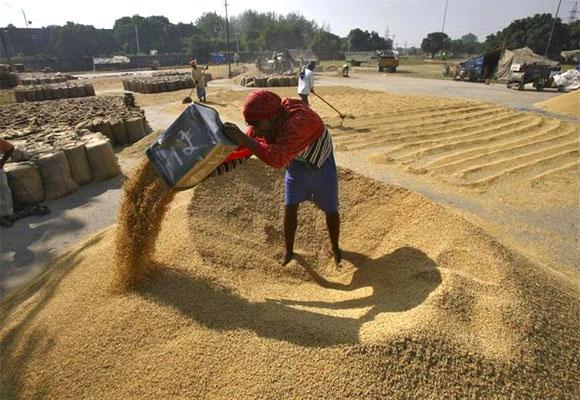 India will find it difficult to support new global customs rules without "an assurance and visible outcomes" that a permanent solution is being negotiated over its concerns about public food stockholdings, the trade minister said on Friday.
India will find it difficult to support new global customs rules without "an assurance and visible outcomes" that a permanent solution is being negotiated over its concerns about public food stockholdings, the trade minister said on Friday.
Diplomats from the 160 World Trade Organisation member countries were supposed to rubber stamp a deal on "trade facilitation" on Thursday that was agreed at talks in Bali last December in the WTO's first ever global trade agreement.
Some estimates say it could add $1 trillion to the world economy and create 21 million jobs.
But the meeting in Geneva was adjourned until Friday after India said it would veto the agreement until it gets what it wants in a separate area linked to its system of subsidising and stockpiling crops. Informal talks are proceeding to resolve the problem before a July 31 deadline.
Several countries issued statements saying that a failure to agree the deal would be a massive blow to the WTO, which is trying to emerge from a decade of failed negotiations on further liberalising global trade.
Delivering a written reply to a question in parliament hours before the Geneva meeting was due to start, Trade Minister Nirmala Sitharaman said India's concerns about subisidies had not been addressed since the Bali deal.
"While there has been progress on the Trade Facilitation Agreement, other decisions, including a decision on public stockholding for food security purposes and other development issues, have been sidelined," she said.
"Till there is an assurance and visible outcomes...India would find it difficult to join the consensus on the Protocol of Amendment." She gave no more details and it was not immediately clear whether the statement signalled a softer stance.
As well as causing concern abroad, the tough position has been criticised by a leading industry group in India and surprised those who expected newly elected pro-business Prime Minister Narendra Modi to radically slash the subsidy programme.
Modi has vowed to spur economic growth through sweeping changes to policies that many people felt had stagnated under the outgoing administration, and his every step is being closely monitored at home and abroad.
A group of 25 countries including Australia, Canada, Colombia, Mexico, Norway, Switzerland and Thailand, said they were "dismayed" at the failure to agree at Thursday's meeting.
They warned that failing to seal the trade facilitation deal would unravel the whole package of trade agreements done in Bali, effectively destroying the chance of further global trade reform, something that India has long demanded.
(Reporting by Rajesh Kumar Singh; Writing by Frank Jack Daniel)












 © 2025
© 2025